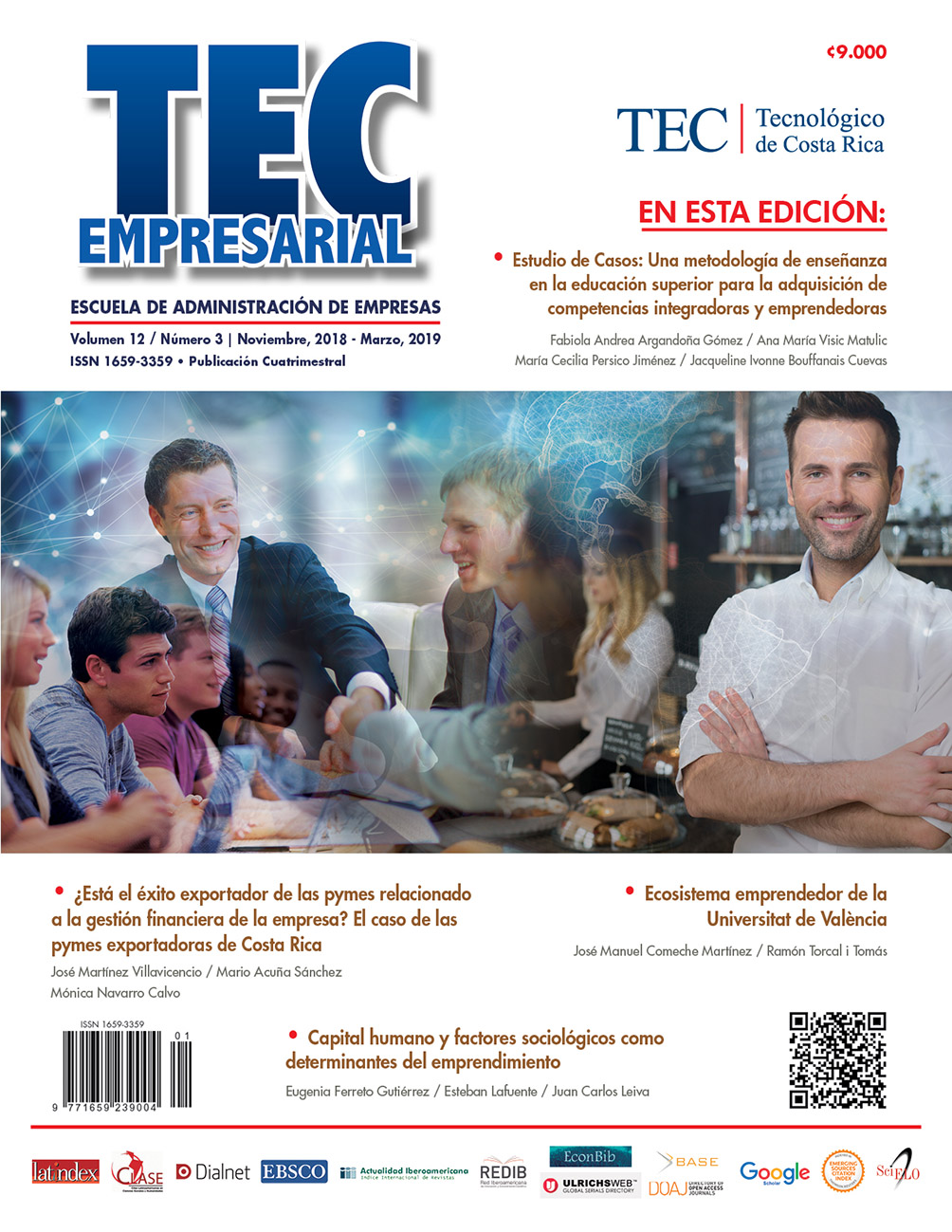Human capital and sociological factors as determinants of entrepreneurship
Main Article Content
Abstract
Building on a systematic review of the existing literature, this study analyzes how different forms of human capital—i.e., formal education and self-confidence in entrepreneurial skills— impact the entrepreneurial entry decision. For the empirical application, we used the adult population survey generated by the Costa Rica Global Entrepreneurship Monitor (GEM) for 2014. The results reveal that the entrepreneurial examples (role model) have a positive influence on the entrepreneurial decision. In addition, the fear of failure reduces the probability of entrepreneurship, while self-confidence in their entrepreneurial skills (perceived ability) is positively associated with entrepreneurial entry.
Article Details
The digital version of the journal is registered under the BY-NC-ND 4.0 Creative Commons license. Therefore, this work may be copy and redistribute the material in any medium or format, as long as you give appropriate credit, provide a link to the license, and indicate if changes were made. You may do so in any reasonable manner, but not in any way that suggests the licensor endorses you or your use.
The authors keep the copyright and give the journal the right of the first publication and the possibility of editing, reproducing, distributing, exhibiting and communicating in the country and abroad through printed and electronic means. On the other hand, the author declares to assume the commitment on any litigation or claim related to the rights of intellectual property, exonerating of responsibility to the Business School of the Costa Rica Institute of Technology.


